
Open
Propel – Student Work Placement Program
Last Update: October 27, 2025
Canada
Wage subsidy for tourism employers hiring post-secondary students
Wage Subsidies And Interns
At a glance
Funding available
Financing goals
Selling in a new market
Integrate new technologies
Develop employee skills
See more
Eligible Funding
- Maximum amount : 7,000 $
- Up to 50% of project cost
Timeline
- Unspecified
Eligible candidates
Eligible Industries
- Arts, entertainment and recreation
- Accommodation and food services
- Other services (except public administration)
Location
- Canada
Legal structures
- Non-profit
- Public or Parapublic institution
- For-profit business
Annual revenue
- All revenue ranges
Organisation size
- All organization sizes
Audience
- Canadians
Non-profit candidates
Sector of operation
- Economic, Social and Community Development
- Employment and Training
Target groups
- Business owners / entrepreneurs
- Academia / students
Revenue structures
- All structures
Scope
- National
Overview
Propel – Student Work Placement Program provides a wage subsidy covering up to $7,000 for employers in the tourism and hospitality sector who hire post-secondary students for work-integrated learning placements. The program aims to support paid co-op, internship, and other hands-on opportunities that help students gain industry-relevant skills.
Activities funded
- Creation of paid, work-integrated learning placements for post-secondary students in tourism and hospitality.
- Development of co-op, internship, or practicum opportunities in collaboration with recognized educational institutions.
- Implementation of on-site, remote, or hybrid work experiences related to tourism or hospitality job functions.
Examples of admissible projects:
$ 7,000
Supporting hospitality intern at eco-lodge through college co-op
$ 7,000
Hiring culinary student for summer internship at boutique hotel
$ 7,000
Hospitality student placement at rural lodge for front desk support
$ 6,600
Internship for marketing student to promote city sightseeing tours
$ 7,000
Employing event management student for festival planning internship
Eligibility
- The applicant must be a registered Canadian business, startup, or not-for-profit operating in or related to the tourism and hospitality sector.
- The position must be a paid work-integrated learning (WIL) placement for a student.
- The placement must be connected to tourism/hospitality roles, such as accommodations, food and beverage services, recreation and entertainment, transportation, or travel services.
- The company must hire the student as an employee (not as an independent contractor).
Who is eligible?
- Accommodations businesses
- Food and beverage services
- Recreation and entertainment organizations
- Transportation companies
- Travel services providers
Who is not eligible
- Companies whose main activity is not related to the tourism or hospitality sector, or not related to a tourism/hospitality job function.
- Employers seeking to hire students as independent contractors rather than as employees.
- Organizations intending to hire immediate family members without a clear, transparent, and fair nepotism policy.
- Employers intending to replace displaced workers or fill roles left vacant due to a labour dispute.
- Employers whose placements are already funded by other federal government grants or programs.
Eligible expenses
- Wages paid to post-secondary students during eligible work-integrated learning placements.
- Total gross wages for the duration of the student's placement (excluding gratuities and commissions).
Eligible geographic areas
- Businesses registered anywhere in Canada.
Selection criteria
- Submission of all required supporting documents within the specified deadlines.
- Accuracy and compliance of the information provided in the internship reports and required documents.
- Adherence to prescribed document formats and templates (e.g., mandatory invoice form).
- Verification of the integrity of submitted documents to prevent any fraud or inaccuracies.
How to apply
1
Register on the Propel portal
- Register your organization on the Propel online portal
- Create an account to access the grant application system
2
Post the job offer
- Post the job opening for a work-integrated learning position
- Ensure the position meets eligibility criteria (tourism/hospitality sector, minimum duration and hours)
3
Hire a qualified student
- Select and hire a qualified student enrolled in a recognized post-secondary institution
- Ensure the student meets program requirements (domestic, in eligible program, not replacing a displaced worker)
4
Submit wage subsidy application
- Apply for the wage subsidy through the Propel portal for the hired student
- Fill in all required fields and upload preliminary documents as instructed
5
Await application review
- Wait for the review and processing of your subsidy application by the Propel team
- Respond to any follow-up requests for additional information if required
6
Submit required supporting documents
- Collect and submit all required supporting documents after the placement is complete (e.g., paystubs, report, invoice, direct deposit form)
- Ensure all forms are properly filled and submitted within the specified timeframe
7
Receive wage subsidy payment
- Receive the wage subsidy payment from Tourism HR Canada after successful review of all documents
Additional information
- Employers must submit all supporting documents within the specified deadlines indicated on the checklist provided by the program.
- Wage subsidy payments are processed by Tourism HR Canada upon receipt of all complete supporting documents.
- If any fraudulent documentation is detected, current and future applications may be cancelled and the employer may be barred from the program.
- Employers must use only the official fillable invoice form provided by the program; other formats are not accepted.
Contacts
propel@tourismhr.ca
1-800-486-9158
Canada
Apply to this program
Frequently Asked Questions about the Propel – Student Work Placement Program Program
Here are answers to the most common questions about the Propel – Student Work Placement Program. This section explains what the program is, how much funding is available, eligibility requirements, application deadlines, and other important details to help you determine if this grant is right for your business.
What is the Propel – Student Work Placement Program?
How much funding can be received?
Who is eligible for the Propel – Student Work Placement Program program?
What expenses are eligible under Propel – Student Work Placement Program?
Who can I contact for more information about the Propel – Student Work Placement Program?
Where is the Propel – Student Work Placement Program available?
Is the Propel – Student Work Placement Program a grant, loan, or tax credit?
Apply to this program
More programs like this
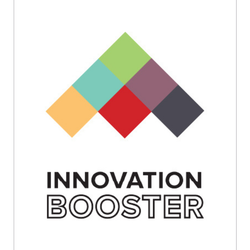
Grant and FundingClosed
CFIN Innovation Booster
Canadian Food Innovation Network (CFIN)Funding to advance and commercialize food innovation
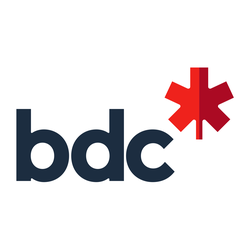
Loans and Capital investmentsOpen
BDC Financing — Buying a Business Loan
Business Development Bank of Canada (BDC)Loan to buy an existing business

Partnering and CollaborationGrant and FundingOpen
Tourism Sprint Program
Destination CanadaCost-shared funding for short-term innovative tourism product development

Wage Subsidies And InternsClosed
Youth Employment and Skills Strategy - Canada Summer Jobs Wage Subsidy
Employment and Social Development Canada (ESDC)Supports employers in creating summer jobs for Canadian youth
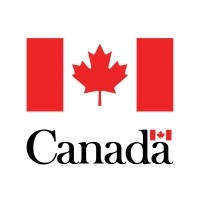
Grant and FundingOpen
Disaster Financial Assistance Arrangements (DFAA)
Public Safety Canada (PSC)Provides federal financial assistance for large-scale natural disaster recovery
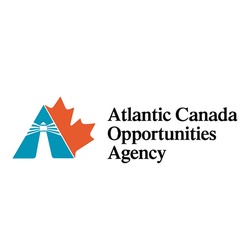
Grant and FundingClosed
Canadian Experiences Fund (CEF)
Atlantic Canada Opportunities Agency (ACOA)Canadian Experiences Fund supports innovative tourism projects expansion
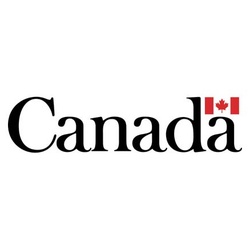
Grant and FundingOpen
Tourism Growth Program (TGP)
Government of CanadaBoost your company's growth and sustainability with targeted tourism investments
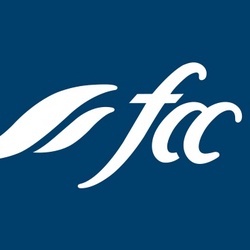
Loans and Capital investmentsOpen
Young Entrepreneur Loan
Farm Credit Canada (FCC)Loans for youth-led agricultural or food-related business

Expert AdviceOpen
CGLCC — Tourism
Canadian LGBT+ Chamber of Commerce (CGLCC)Market your tourism business to LGBT+ travellers

Grant and FundingClosed
Regional development agencies: COVID-19 support
Government of CanadaSupport for businesses affected by COVID-19
Sign up to our platform to access the Propel – Student Work Placement Program information sheet for free
Get access to 4,000+ programs, practical guides, personalized alerts, and an AI assistant to support your grant applications.